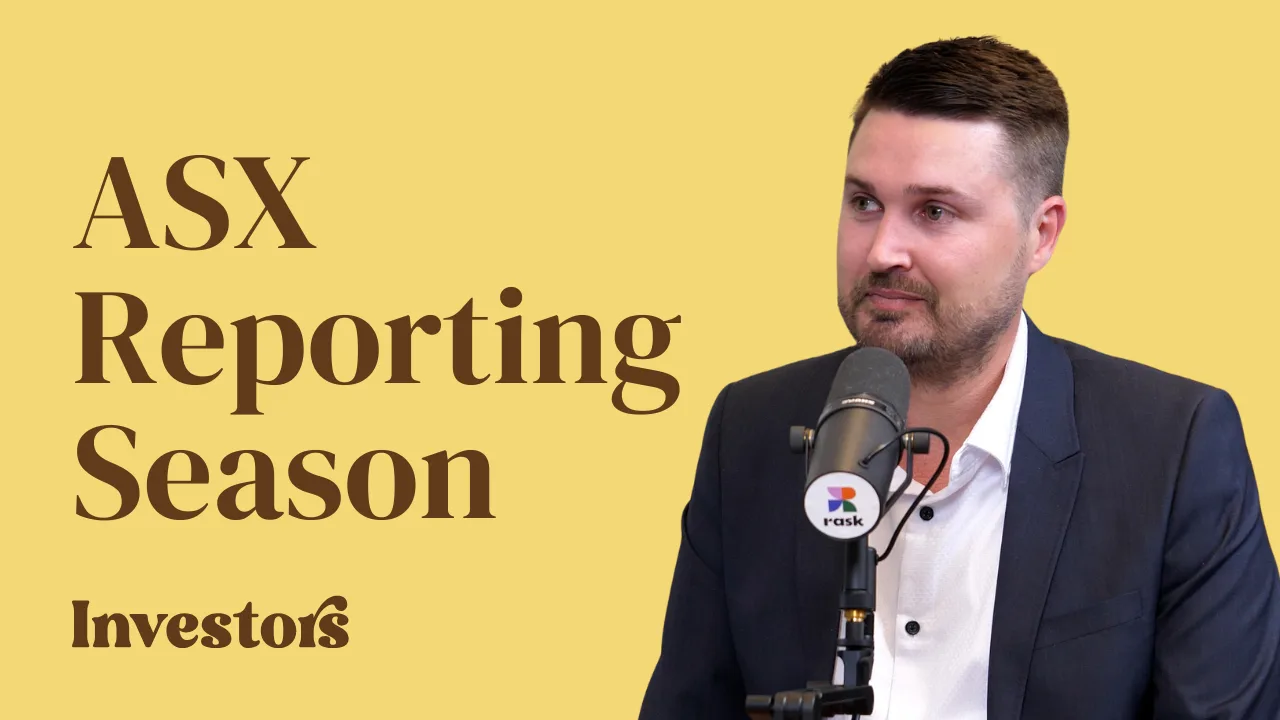At first glance, you might think Pinnacle Investment Management Ltd (ASX: PNI) is another listed investment fund. However, there’s more to it than meets the eye…
Please note: The following write-up comes from Raymond Jang, the editor of Rask Media and analyst for Rask Australia. Raymond has been looking into Pinnacle, a very high-quality financial company listed on the ASX and originally presented this deep-dive exclusively to our premium, Rask Invest membership. Over to Raymond…
At first glance, you might think Pinnacle Investment Management Ltd (ASX: PNI) is another listed investment fund. However, there’s more to it than meets the eye.
Imagine you’re a great analyst or investor working at Macquarie Group (ASX: MQG) or Platinum (ASX: PTM). You have a good job but you really want to try your hand at being your own boss. A full-blown fund manager. When an aspirational fund manager wants to set up an investment fund they have to face the prospect that their business is going to be unprofitable, to begin with, with limited funds under management. This is where Pinnacle comes in to lend a helping hand.
Pinnacle provides the following services in exchange for a minority stake in the investment fund/company:
- equity, seed capital and working capital; and
- distribution/marketing services, business support and responsible entity services.
So, Pinnacle essentially provides a platform for up-and-coming active fund management firms that are coined, ‘Affiliates’.
The Affiliates pay Pinnacle a service fee for all the back-end operations. Think of expenses like accounting, office rent, technology, marketing, legal and sales.
On top of receiving a service fee, Pinnacle shares in the net profits of the Affiliates due to its equity/ownership stake. The service fee is the cake but the net profit is the cream on the top.
Pinnacle is currently invested in 16 Affiliates as shown below.

The percentages shown in the image above is Pinnacle’s ownership of the particular fund management business. For example, it owns 23.5% of Antipodes — the investment company run by Jacob Mitchell. You can watch Owen’s interview with Jacob here.
The value proposition for Affiliates
The number of Affiliates in Pinnacle’s stable has quickly risen from 7 in 2016 to 16 in 2021. This is a reflection of Pinnacle’s success and the rise of boutique fund managers moving away from large institutional fund managers.
Why is this?
New fund managers tend to prefer to start at a large institutional firm (e.g. Macquarie) because it provides adequate amounts of capital and the firm has a large distribution channel to attract more capital. However, big institutional fund managers have been finding it more difficult to differentiate themselves because large institutional firms are more focused on growing funds under management (FUM) rather than achieving outperformance.
As a result, more and more fund managers are setting up their own shop. However, often the biggest obstacle is getting distribution to financial advisers and investment consultants. This is on top of the initial set-up costs.
Pinnacle only charges its Affiliates for its services once they reach profitability, which can generally take three to five years. The Pinnacle platform is attractive to new fund managers for the following reasons:
- It allows Affiliates to focus on their core strength, which is to generate investment outperformance (especially important in the early years);
- There is strong alignment between Pinnacle and the Affiliates (both win if they are successful); and
- Affiliates are able to tap into Pinnacle’s wide and deep distribution network (which costs Pinnacle nothing, yet is extremely valuable to the funds).
Distribution for fund managers will become even more important as the Australian Securities & Investments Commission’s design and distribution obligations come into effect on 5 October 2021.
Attractive long term unit economics
The Managing Director of Pinnacle, Ian Macoun, repeatedly emphasised the importance of having a medium-term outlook in an earnings call around August 2019. In particular, he said Pinnacle, “will continue to invest in activities, which they believe will bring substantial benefits over the medium term whilst recognising that such investment may restrain profits to some degree in the short term.”
Once Pinnacle’s Affiliates hit profitability, Pinnacle can quickly recover its initial sunk costs. When boutique funds reach such an inflection point, they often scale rapidly. As the Affiliates scale and their performance continues to improve, they will attract more funds. More funds mean more money for both the Affiliate and Pinnacle.
How so?
Affiliates earn revenue from management fees (e.g. 1.3%) and performance fees (20% over a hurdle of 10%). If more funds come in the door, the pie gets bigger, so Pinnacle gets a bigger slice of the pie in the form of its share of the Affiliates’ net profits.
This investment approach has played out favourably as more of its Affiliates have been able to attract more FUM.

The potential upside of this arrangement is enormous over the long term as the new Affiliates become established because Pinnacle is able to benefit from their outperformance and bring in FUM at a low incremental cost. Pinnacle’s revenue can essentially be driven by the Affiliates’ investment teams without Pinnacle needing to lift a finger.
Pinnacle is the chassis and the Affiliates are the engine.
The below graph illustrates the growing engine of FUM that is subject o performance fees. However, it should be noted that performance fees are only attained if performance hurdles are achieved.

Macoun you’ve done it again
Ian Macoun is the founding Managing Director of Pinnacle and has been the managing director and chair of Pinnacle since 2006. Macoun has a stellar track record of establishing investment businesses.
Whilst past performance does not guarantee future performance, it is often a sound indicator of a leader’s pedigree.
Every time Macoun has established a new investment business, he has been in it for the long haul. He was the founding Managing Director of Perennial Investment Partners from 1998 to 2005. Prior to this, he built the Queensland Investment Corporation, leading as the Chief Executive for five years.
And to date, Macoun’s longest tenure at one organisation resides with Pinnacle. Further, Macoun is strongly aligned with shareholders, holding 9.70% in equity. There is also a high level of insider ownership sitting at around 36%.
As mentioned previously, Macoun takes a medium-term approach to investment, which is reflected by his previous tenures and endeavours.
Despite Pinnacle’s solid growth, Macoun’s base salary has remained fixed at $600,000 per annum (incl. super).
I think Macoun’s strong pedigree in the investment industry combined with his measured investment approach and a sound level of shareholder alignment is a hidden competitive advantage of Pinnacle.
Long runway for growth
Pinnacle’s competitive advantage lies in its reputation as being one of the leading marketing and distributors in Australia. This is showcased by winning the Zenith Fund Distributor of the Year awards for four consecutive years between 2016 and 2019.
While it didn’t manage to win it in 2020, it placed in the top three.
It’s quite evident that Pinnacle’s distribution capabilities are of a high calibre, but the performance of the distribution team is dictated by the appetite for money to be invested in funds.
There has been a growing trend of retail investors investing their money in funds and I think this momentum will continue, especially on the back of a low-interest-rate environment.

Pinnacle has predominantly invested in Affiliates that focus on equities but in recent years, it has broadened its portfolio to include other asset classes like credit, infrastructure and REITs.
By diversifying its portfolio of Affiliates it opens more channels for retail fund inflows as well as reducing overall investment risk exposure.
What it’s worth
It appears the market is becoming quite optimistic about Pinnacle as it is currently trading at an Enterprise Value to Revenue (EV/revenue) multiple of 66x. I think the enterprise value is a more accurate reflection of the value of a business as it accounts for the company’s debt and strips away any cash and equivalents, essentially a theoretical purchase price if it was up for sale as a whole. As you can see below, Pinnacle hit a record high EV/revenue multiple of 83x because it recorded unprecedented growth in revenue and earnings for FY18.

Given Pinnacle’s strong results for the half-year, it appears to be on track to beat the previous peak given the current investing environment driven by record low interest rates. On a micro level, Pinnacle looks set to double earnings recorded in FY20, which could propel further optimism in Pinnacle’s growth prospects. Investors should also keep in mind that the recent growth has been primarily driven by the stellar performance of affiliate, Hyperion Asset Management, which benefited from the tech boom since COVID. And with the recent rotation from growth to value shares, it may be difficult for Pinnacle to maintain its recent form on the bottom line.
Final thoughts
I believe Pinnacle is a potential investment where there are multiple ways to win and few ways to lose. As you can see, I am attracted to the sound unit economics, strong industry tailwinds and aligned management team.
Pinnacle has a healthy balance sheet with little debt, so it is in a great position to capitalise on the growing boutique investment segment and the rising appetite for investment funds. That said, there are risks, I will be keeping a close eye on the rate of growth in FUM and the investment performance of its Affiliates, which I think are the primary drivers of future growth.













